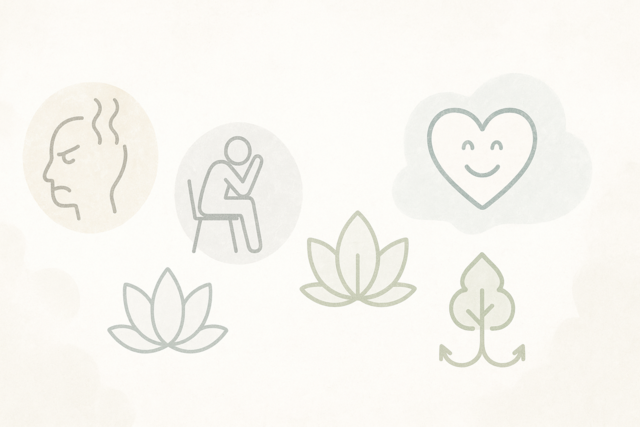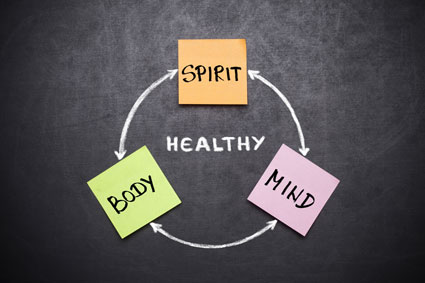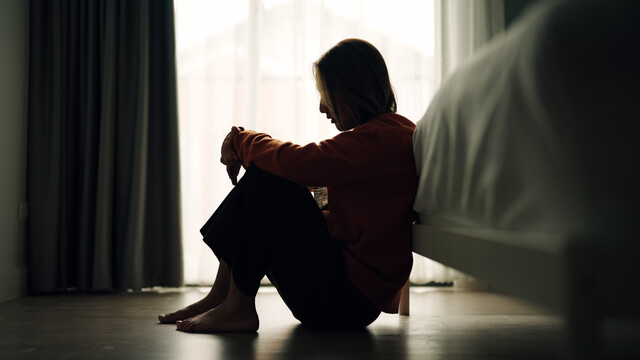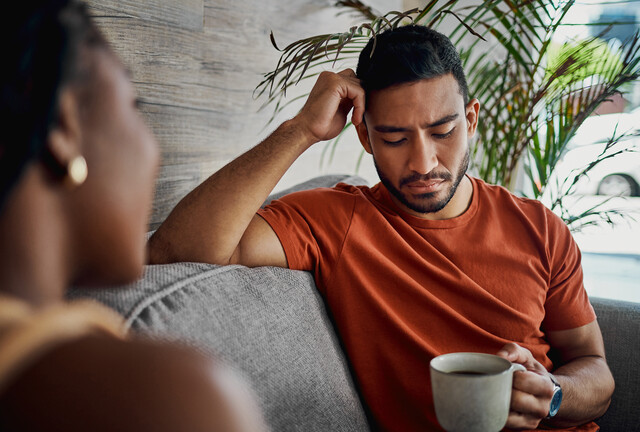Once you have looked at what social anxiety is, and what the similar conditions are, you need to look at what possible causes there may be for social anxiety. Addressing something with the intent of alleviating it in some way can only get so far without also addressing he cause or source of that thing. With the cause or causes of social anxiety, there is some debate and some misinformation about what the exact cause of social anxiety is.
Looking at the potential causes of social anxiety can allow those who have it, their supporters, and those who treat social anxiety to have a better understanding of the condition. Knowing the cause of something allows treatment strategies--whether they are coping techniques, medication, or therapy--to work effectively. However, it should be kept in mind that not every cause listed in this article will be a possible cause for every person; some factors play a larger role than others do and some play no role at all. For social anxiety, there is no definitive cause so finding a cause for a particular person's social anxiety will probably need to be done on a case-by-case basis.
Misconceptions
Things such as shyness and being introverted have been used interchangeably with social anxiety. One of the biggest reasons why that happens in the first place, in addition to the association and similarities of those states and those similar to them, is often due to misconceptions about social anxiety. Usually, the largest misconception about social anxiety, shyness, introverts, etc. is that it's all the same thing. That one piece of information, with some degree of momentum, affects all other ideas about social anxiety that may come about.
Listening to misconceptions about social anxiety can be harmful to those with it because it gives them the wrong image of it. It can affect how they view their social anxiety, how they approach it, and how they feel about themselves. It can also affect how others view and approach them and their social anxiety. Misunderstanding the misconceptions about what causes social anxiety can be especially detrimental because it can plant the idea that having social anxiety means that you are broken and that there is nothing that can be done to fix you. It fuels the thought that not having 100% perfect mental health makes you less of a person and that is absolutely not true. Realizing what is and isn't fact when you begin to look at the suspected causes of social anxiety can help you better understand the condition and all of its other aspects from here on out.
-
Social anxiety is caused by events in your childhood--Many people are under the impression that social anxiety is the result of something that happened in a person's childhood. This is partially due to perceived stereotypes about therapy and social anxiety in general. The belief maintains that any kind of mental health issue is going to have its roots in a person's childhood, and thus therapy will focus solely on finding that root cause. However, while therapy and treatment approaches for social anxiety will look at a person's history with the condition to determine what actions can be taken, the focus is not on finding the cause in some cataclysmic event when you were nine.
-
Social anxiety is just shyness that got out of hand--Social anxiety and shyness are two separate conditions. They may interact with one another and a person may have both, but they are not the same thing. The two are often mistaken for each other--which can prove disastrous in severe cases--which helps fuel this myth.
-
Social anxiety is caused by trauma--It is possible for severe traumatic events to cause anxiety, hence why post-traumatic stress disorder or PTSD is a known condition. Most cases of social anxiety and PTSD are considered to be co-occurring conditions rather than a cause and effect type situation. The effect that PTSD has on a person's mind is similar to the effect that social anxiety has, which is one suggested reason as to why the link of trauma and social anxiety exists. However, it is rather unclear as to whether or not trauma is a clear cause of social anxiety, or they just so happen to manifest psychologically in the same way.
-
Social anxiety is so new that there is no clear cause for it--Until 1980 when the Diagnostic and Statistical Manual of Mental Disorders fourth edition was published, social anxiety or social phobia was not a registered or accepted diagnosis. It would also be diagnosed as avoidant personality disorder, which was considered completely separate from any kind of social phobia condition and thus a person could not be diagnosed with both. Social anxiety's short history as a recognized condition--despite documented evidence of its existence going back to 400 B.C.--plays a rather large role in generating this myth and others about it.
Involvement of Other Conditions
As stated previously, other conditions can affect social anxiety in terms of how it presents and how it is treated. General anxiety is often a side effect of other health problems and substance abuse issues. Whether or not social anxiety is caused in the same manner is yet to be clearly determined, but most researchers conclude that the involvement of other conditions can affect how social anxiety manifests and is treated.
Other mental health conditions--such as panic disorders, specific phobias, agoraphobia, and generalized anxiety disorder--often develop in a similar manner as social anxiety disorder. It is a common occurrence for social anxiety to develop with another mental health condition, such as depression. In some cases, the additional condition develops as a result of a person's social anxiety and causes it to worsen. They can interfere with how a person's social anxiety is treated, especially if they are using medication to treat both conditions and there is an interaction between prescriptions.
Physical health conditions, especially ones related to a person's cardiac and respiratory systems, can mimic the physical symptoms of social anxiety. Issues with a person's thyroid, which is a part of the lymphatic and endocrine systems in the body and affects hormones, can also mimic anxiety symptoms. In those instances, a person may be misdiagnosed with social anxiety if the proper tests are not run. Those conditions may also prevent a diagnosis of social anxiety and even affect how the cause of a person's social anxiety is determined.
Psychological Causes
The development of structures in the brain, such as the amygdala and hippocampus, are theorized to have a role in causing social anxiety. It is not a surprise to think that there is a neurological factor involved with the development of social anxiety, as the bulk of the condition is psychological in nature. For most mental health conditions, the causes are localized primarily to the brain and most researchers will focus on determining only those causes.
The brain's general response to stress, which is a major factor in social anxiety, is often analyzed from a psychological standpoint. A person's brain is the control center for the body and small factors can affect how it does its job. If the brain consistently is unable to react to stress, even in small dosages, then it is likely that conditions that are affected by stress will develop. It is theorized that stress generated from traumatic events, as discussed earlier, may contribute to the development of social anxiety to a degree rather than outright cause it.
Several studies that have looked into the neurobiology causes of social anxiety conducted magnetic resonance imaging (MRI) and brain scans on persons diagnosed with social anxiety. After social interaction, one study showed that there was an increase in blood flow and activity in the amygdala, which controls a person's moods and fear response. When a person's amygdala is active, or overactive in the case of those with social anxiety, it signals to the body and the rest of the brain that there is a threat.
Similar studies have found that there may be an association between social anxiety and the size of a person's hippocampus. The hippocampus is the part of the brain that writes our memories, and one theory--which is still unproven--suggests that stressful events cause shrinkage of the hippocampus. There is some debate as to whether social anxiety is involved in the changes in the size of the hippocampus, or that persons with social anxiety have a naturally smaller hippocampus.
Environmental Causes
Social anxiety is going to have causes that are going to be environmental; humans are largely social beings who are shaped by their surroundings. One theory that is popular with psychologists is that the beginnings of social anxiety develop through learning while a person is quite young. The theory is reminiscent of Ivan Pavlov's classical conditioning concept, where continuous exposure to something while doing an action turns it habitual when exposed to that thing. According to the theory, a person's mind begins to associate socializing as something negative, usually as a result of experiences where it has been negative or they have witnessed negative consequences of socializing.
An additional aspect of the environmental theory is that the dangers of socializing that our parents warn us about transfer into the mind of a person with social anxiety differently. It basically suggests that the concerns and fears that parents have about social situations create a negative association for their children. Consider the idea of "Stranger-Danger" that many children are taught when they are young: if people you don't know are potentially dangerous until proven otherwise, you should not associate or go with them. According to the theory, the idea of interacting with strangers as potentially dangerous causes people who have social anxiety to associate all strangers and interactions as potentially dangerous.
There is also the idea that those who have social anxiety were never properly socialized during their formative years. In general, someone who does not recognize the signals and cues in a particular social setting is not going to do well there. Someone who never learns the basic social cues for general socializations will, following that logic, not be able to operate well in a social setting. This concept has been present in cases where one or both of a person's parents were toxic in nature--controlling, overprotective, highly critical, or even rejecting of their child. It is suspected that, in those cases, the child never properly learns to socialize without stress and is prevented from learning how to adequately and safely handle stress.
Is There a Genetic Element?
There is some thought behind the idea that there is some genetic aspect to social anxiety. Basically, it is suspected that there may be some disposition for developing social anxiety due to what is in a person's DNA. It is common for mental health conditions to run in families, including social anxiety disorder, which can increase a person's chance of developing issues with mental health. It should be noted, that research into genetic causes of social anxiety has yet to discover a specific gene or genetic component that indicates social anxiety as a genetic condition.
Genetic causes of social anxiety are often brought up in cases where it was present in siblings. In a 2002 study, researchers who looked at twins found that if one twin develops or has symptoms of social anxiety, the other will develop it as well. That study is often cited as evidence of a genetic factor for social anxiety, as well as evidence of the strong genetic bond between twins. If anything, it does suggest that having family members with social anxiety increases the chances that you will also have it. However, it should be kept in mind that having a relative with social anxiety does not guarantee that you will develop it.
Other studies, such as one conducted by Dr. Jerome Kagan in that same year, seem to suggest that those with social anxiety were predisposed to it since birth thanks to their genetic make-up. In Kagan's study, he monitored the interactions and responses of a group or cohort of infants. Some presented more discomfort than others when surrounded by their peers, even in small groups, which was then alleviated when those babies were removed from the group. Through follow-ups and continued monitoring, he concluded that those infants who displayed distress while socializing were more likely to develop social anxiety as they reached adolescence.





























